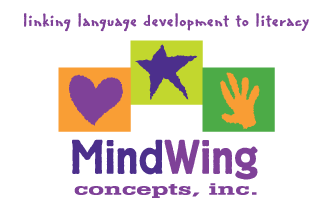Secure Checkout + FREE SHIPPING (U.S. Orders over $60)
Menu
-
- Home
-
About Us
-
The Approach
-
Linking Language & Literacy
-
Professional Learning
-
Learning Resources
-
SHOP
-
Blog
-
- About MindWing
- Our People
- Contact Us
- Your Account
- Login
-
United States (USD $)

Secure Checkout + FREE SHIPPING (U.S. Orders over $60)
Tech Tuesday/Summer Study Series: Narrative Meta-Analysis!
by Sean Sweeney May 30, 2022 2 min read
Can you write “meta-analysis” without an exclamation point?
I know I can’t!
With much of the USA wrapping up the 2021-22 school year, it’s time to embark on another summer study series. Naturally, each post will have a tech tie-in with a practical resource as well.
 First up, I was super excited to tell Maryellen and Sheila about a meta-analysis on narrative language interventions from October 2021 and have been eager to write about it here. A meta-analysis is considered among the highest levels of evidence and is a study of studies so to speak, applying criteria to include research on a topic and determining effect sizes of interventions. The study in question, Interventions Designed to Improve Narrative Language in School-Age Children: A Systematic Review With Meta-Analyses (Pico, Prahl, Biel, Peterson, Biel, Woods & Contesse) was published in ASHA’s Language, Speech and Hearing Services in Schools and is therefore available to all ASHA members, or ask your friendly SLP for a copy.
First up, I was super excited to tell Maryellen and Sheila about a meta-analysis on narrative language interventions from October 2021 and have been eager to write about it here. A meta-analysis is considered among the highest levels of evidence and is a study of studies so to speak, applying criteria to include research on a topic and determining effect sizes of interventions. The study in question, Interventions Designed to Improve Narrative Language in School-Age Children: A Systematic Review With Meta-Analyses (Pico, Prahl, Biel, Peterson, Biel, Woods & Contesse) was published in ASHA’s Language, Speech and Hearing Services in Schools and is therefore available to all ASHA members, or ask your friendly SLP for a copy.
Notably, this study included number-crunching of research on Story Grammar Marker® itself among other interventions for narrative development, and that’s really exciting!
As usual, I will give you some bullet points and hope you will go on to peruse the article yourself and add it to your repository of Evidence-Based Practice resources, because it certainly backs up your use of SGM®:
- The authors first affirm the importance of narrative language, and throughout the article, cite references of its impact on academic progress, achievement of common core standards, reading comprehension, social competency, and even success in math, which was new to me!
- Distinctions between learning profiles and narrative competency include students with ASD struggling more with coherence, and language-based learning disordered children needing development of literate language features such as complex conjunction use and elaborated noun phrases.
- Outlined here are the components of narrative including story elements, macrostructure and microstructure, and the variety of genres that might be involved (e.g. retelling vs personal narrative).
- Three studies involving SGM® were included in the analysis and, interestingly, these all involved diverse learning profiles (children with hearing loss, bilingual and ELL students).
- Overall, the results of all studies analyzed suggested “positive, medium effects for narrative comprehension outcomes and positive, medium-to-high effects for narrative production outcomes.”
- Effective characteristics of the interventions notably included: a) explicit instruction on story grammar elements with b) visual aids such as SGM®’s manipulatives, icons, and story maps, along with c) verbal scaffolding and prompts in the context of d) motivating stories such as those in authentic children’s literature and e) repeated opportunities for children to produce narratives.
Besides the support for interventions such as SGM® being used with students with diverse learning characteristics and potentially all children, the studies analyzed also highlighted the potential for employment of these techniques by a variety of educational staff besides speech and language pathologists—e.g., classroom teachers and paraprofessionals—thus extending their reach.
So, for a practical summer resource…did this study bring you a wave of excitement? Check out Wave by Suzy Lee in its book form or in the lovely sound-enhanced video (3:32 length) below. This wordless picture book provides you with a Complete Episode as its main character enjoys a day at the beach interacting with the crashing waves.
Sean Sweeney
Sean Sweeney, MS, MEd, CCC-SLP, is a speech-language pathologist and technology specialist working in private practice at the Ely Center in Needham, MA, and as a clinical supervisor at Boston University. He consults with local and national organizations on technology integration in speech and language interventions. His blog, SpeechTechie (www.speechtechie.com), looks at technology “through a language lens.” Contact him at sean@speechtechie.com.
Leave a comment.
Comments will be approved before showing up.
